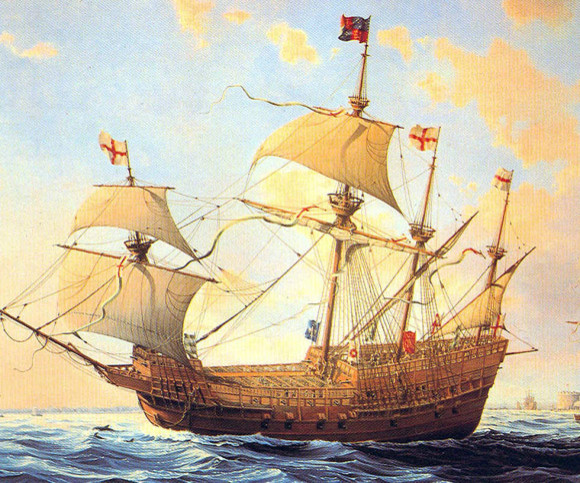That Sinking Feeling: Job Cuts By BAE Systems (LON: BA) Means The End Of 500 Years of Shipbuilding In Portsmouth, England

A decision by Britain’s multinational defense, security and aerospace giant BAE Systems plc (LON:BA) to cut 1,775 jobs at shipyards in England and Scotland has, among other things, spelled the death of more than 500 years of shipbuilding in the port city of Portsmouth on the south coast of England.
Portsmouth will suffer the loss of 940 staff posts (and 170 agency workers), although the site will maintain some repair and maintenance facilities. "Under these proposals, shipbuilding operations at Portsmouth will cease in the second half of 2014,” BAE said in a statement.
But the company added that it “remains committed to continued investment in the Portsmouth area as the center of its Maritime Services and high-end naval equipment and combat systems business." Defense Secretary Philip Hammond said £100 million will be spent to expand the Portsmouth dockyards -- but the port will be used for ship-servicing, not ship-building anymore.
David Hulse, chairman of the Confederation of Shipbuilding and Engineering Unions' shipbuilding national committee, called the job cuts a "devastating day for the UK shipbuilding industry.” Mike Hancock, an independent MP for Portsmouth South, eulogized the sweeping away of more than 500 years of tradition. "The expertise [in Portsmouth] is very, very much dedicated to shipbuilding. And once they disperse the workforce in various parts of the south of England I don't think it's going to be easy to put that back together,” he said. "I think the government [is] making a big mistake for the future of shipbuilding in the UK, particularly military shipbuilding."
Garry Graham, deputy general secretary of the Prospect union for defense specialists, lamented: “For an island nation and in this time of increased global uncertainty, we should be seeking to maintain our shipbuilding capacity, not reduce it. Shipbuilding is not only a key element of our defense infrastructure, it is also an industry where the UK should be a world leader, creating and sustaining highly skilled and well-paid jobs.”
Portsmouth staff were informed of the job cull Wednesday morning. “I think it’s absolutely disgusting. They have kept us in the dark for so long,” a Portsmouth shipbuilder named James Jackson told the local paper, the Portsmouth News. Referring to a planned move of some work at Portsmouth to Scottish ports, Jackson accused the government of playing politics ahead of the referendum on independence for Scotland due next year. “I think it’s political. I think most of the Scottish workers are going to be fine,” he said. MP Hancock concurred, telling the paper: “It’s a massive and grave error on the part of the government if it is going to put more shipbuilding in Scotland. It’s political. It always has been.”
The Portsmouth News cited a report indicating that the local naval base generates about £1.68 billion ($2.7 billion) yearly for the surrounding economy and supports almost 20,000 jobs across south Hampshire, strongly suggesting that the economic harm of the closure of the shipbuilding yards will spill over into the region as a whole.
Moreover, warships have been constructed in Portsmouth – a storied royal naval base -- since 1497, when England was ruled by King Henry VII, who sent John Cabot to explore the New World. The famous Tudor warship, the Mary Rose, was built in Portsmouth in 1511 and served in wars against France and Scotland for 33 years before it sank. The wreck of the Rose was discovered in 1971 and salvaged 11 years later. The surviving remnants of the ship (along with early 16th-century artefacts) are now held in a museum in Portsmouth.
© Copyright IBTimes 2025. All rights reserved.





















